Connecting Australian and international Earth observation communities
September has been a rich and vibrant month in Australia for our Earth observation (EO) community!
From the Advancing Earth Observation (AEO) Forum in Adelaide, to the international Committee on Earth Observation Satellites (CEOS) SIT Technical Workshop in Sydney, followed by a meeting with land surface imaging experts in Canberra, we endeavor to strengthen the connections between the Australian and the international EO community through these events.
AEO Forum – Adelaide, 8-13 September
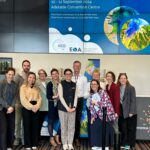 Last week, CSIRO displayed a strong representation at the Advancing Earth Observation (AEO) Forum in Adelaide: our Centre for Earth Observation (CCEO) sponsored and supported the event organisation in South Australia, and coordinated a broad range of remote sensing contributions across the organisation.
Last week, CSIRO displayed a strong representation at the Advancing Earth Observation (AEO) Forum in Adelaide: our Centre for Earth Observation (CCEO) sponsored and supported the event organisation in South Australia, and coordinated a broad range of remote sensing contributions across the organisation.
Our experts promoted and discussed some of our key capabilities, from our work on monitoring water quality for AquaWatch Australia to our satellite calibration and validation research and operational activities, data cube technology highlights and applications, as well as opportunities to leverage environmental management using NovaSAR-1 data. 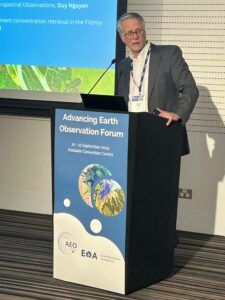
Participants benefited from a rich scientific programme including sessions on land and marine applications, technology innovation (Data analytics, Artificial Intelligence and Machine Learning), EO best practices for decision making, insightful keynotes, panel discussions on EO and Climate, or how to embrace diversity & inclusion in our sector. CSIRO delivered 4 workshops where participants could improve their skills and discuss on calibration/validation and SAR. 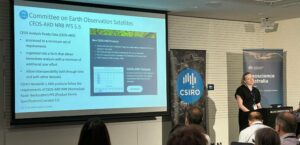
The international community had a chance to participate in various forms. Aravind, a world-known EO expert, from TerraWatch Space shared his perspectives on the global EO sector and opportunities for Australia;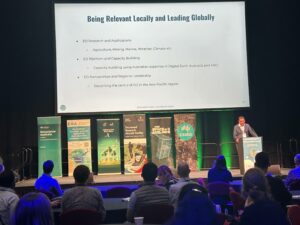
the European Commission showcased their services throughout the Copernicus Climate Change Service; and the CEOS Mission, Instruments and Measurements (MIM) Database), annually updated, was also featured as the key go-to reference when you search for EO satellites availability and capabilities.
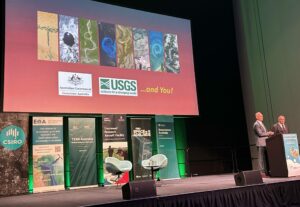 GA (Geoscience Australia) and USGS (US Geophysical Survey) took the stage to provide an overview and unpack what the recently announced Landsat Next partnership implies for Australia. Most presentations underlined the value of free and open data policy of Landsat and Copernicus programmes that Space Agencies and the global EO community have successfully managed to implement through CEOS and the inter-governmental Group on Earth Observation (GEO).
GA (Geoscience Australia) and USGS (US Geophysical Survey) took the stage to provide an overview and unpack what the recently announced Landsat Next partnership implies for Australia. Most presentations underlined the value of free and open data policy of Landsat and Copernicus programmes that Space Agencies and the global EO community have successfully managed to implement through CEOS and the inter-governmental Group on Earth Observation (GEO).
The EO Australian user community can access and process data, analyse and turn into meaningful information for social benefits, including support of decision making in disasters response, climate monitoring and adaption, and environmental management.
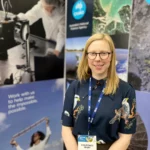
Last but not least, Dr Courtney Bright received the Earth Observation Australia (EOA) Early Career Award, recognising her leadership in the development of a conceptual Earth observation satellite design project between CSIRO, NASA JPL, and Australian university experts, in contribution to the AquaWatch Australia programme.
CEOS SIT Technical Workshop – Sydney, 17-19 September
This week, CSIRO and Geoscience Australia co-hosted this international event in Sydney, supporting our colleagues from JAXA (Japan Aerospace Exploration Agency) current Strategic Implementation Team Chair.
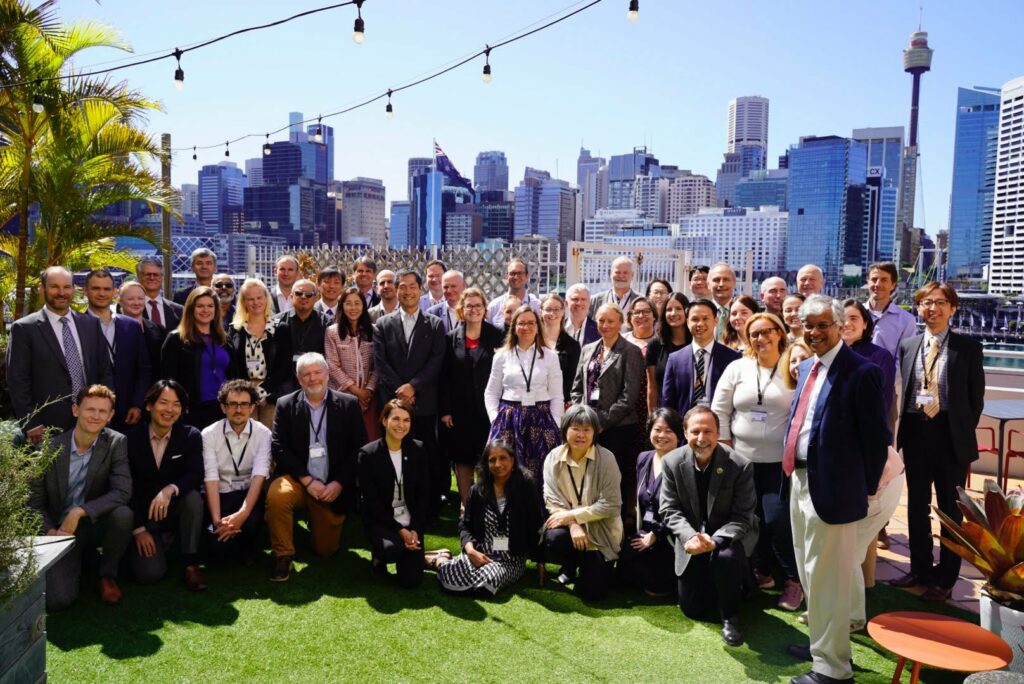
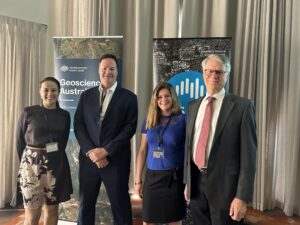
The CEOS (Committee on Earth Observation Satellites) community held a productive SIT Technical Workshop in preparation of the CEOS Plenary hosted by the Canadian Space Agency in Montreal next month. Around 20 Space Agencies including NASA, NOAA, and USGS (America), ESA, UKSA and the ASI (Europe), and JAXA, GISTDA (Asia) were represented around the table.
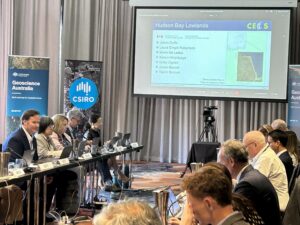 CSIRO specifically co-leads efforts on the United Nations Sustainable Development Goals and Biodiversity/Ecosystems extent, and actively contributes to satellite calibration/validation activities, data interoperability and analytics issues supporting the CEOS Analytics Lab.
CSIRO specifically co-leads efforts on the United Nations Sustainable Development Goals and Biodiversity/Ecosystems extent, and actively contributes to satellite calibration/validation activities, data interoperability and analytics issues supporting the CEOS Analytics Lab.
This week, in preparation of the CEOS Plenary, we have reviewed progress of our activities and discussed best ways to improve our satellite-based contributions to global agendas hashtagclimate change, hashtagsustainability, biomass, land and water monitoring. As a co-host, CSIRO’s AquaWatch Australia Mission Lead, Dr Alex Held was given the opportunity to update CEOS Agencies on the recent milestones and key developments.
